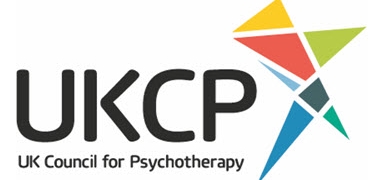About Maja Andersen
Maja Andersen
LOCATION: Online via Zoom
AVAILABILITY: Tuesday-Friday mornings & afternoons
PRICE: £70 per session (£65 for supervision)
SPECIALISMS:
Trauma
EMDR
Anxiety
Training
Maya’s academic training includes:
Master of Science in Psychotherapy - University of Brighton
Post-graduate Diploma in Psychodynamic Psychotherapeutic Counselling - University of Brighton
Jungian Foundation Course - Chichester University & The Society of Analytical Psychology, London
Registered Counsellor - British Association for Counselling and Psychotherapy (BACP)
Maja is also an EMDR - Trained Therapist and a member of the EMDR Association UK
Maja is a registered Counsellor - British Association for Counselling and Psychotherapy (BACP), an accredited Psychotherapist - Universities Psychotherapy and Counselling Association (UPCA) and a registered Clinical Psychotherapist - UK Council for Psychotherapy (UKCP)
Approach
Maja hopes the initial online session will give you a sense of whether therapy is right for you. It is a non-judgmental space where you can begin to explore and make sense of personal experiences and difficulties in a safe, supportive and confidential environment.
If you decide to engage with ongoing therapy, we will agree on a reoccurring weekly appointment, which will be yours for as long as you want it. While the future cannot be predicted, Maja has noticed significant changes in those people she has worked with. After about a year-long commitment to therapy, they report feeling:
• Empowered to take charge of their lives
• Clearer on who they are and what they want
• More committed to positive relationships
• Brave enough to change or end negative relationships
• More fulfilled and happier for no specific reason
• “As if a weight has been lifted off my shoulders.”
Trauma
When life feels challenging, daunting or unfulfilling, it’s usually a result of trauma, difficult life events or relational issues. This can make you feel anxious, depressed and not quite yourself. Trauma sounds scary, but it isn’t always what you think it is. Sometimes trauma is the result of a big, dramatic event in your life. Sometimes, it’s an accumulation of difficult everyday events.
You might feel a bit alone, disconnected or misunderstood, and you probably picked up some negative thoughts and habits as a way to cope. You can overcome this. You can work through the coping mechanisms that no longer work for you. You can feel lighter and more at ease in life. You can fully believe and feel that you are good enough.
EMDR
EMDR stands for Eye Movement Desensitization and Reprocessing. It is a powerful therapeutic treatment for those suffering from difficult life experiences and distressing memories. EMDR can be a highly effective type of therapy for past trauma, anxiety disorders, low self-esteem, loss and grief to name a few. For complex PTSD and childhood trauma, EMDR therapy can be used in combination with counselling. The National Institute for Health and Care Excellence (NICE) and the World Health Organization (WHO) recommends EMDR therapy for PTSD.
How EMDR Therapy Works?
You will be asked to hold a specific memory in mind while experiencing bilateral stimulation. This is typically in the form of eye movement, which mimics REM sleep. During Rapid Eye Movement (REM) sleep our minds process and integrates our experiences and emotions.
During EMDR treatment you will remain fully awake and present, enabling you to process and heal from distressing life experiences in a safe therapeutic space. As a memory is processed, you will notice that your emotional response to the memory gradually becomes less distressing. In fact, once a memory is fully processed, your distress may be completely neutralised. EMDR does not change your memories, but rather your emotional response to the event is transformed.
Anxiety
Anxiety is a stress response; it alerts you to the possibility of danger, think of it as a fire alarm going off, so that makes anxiety useful, right? Well, it can be useful, in that it signals to you that something isn’t quite right. But anxiety can take over, leaving you feeling on alert even when there is no actual danger present.
So what causes anxiety, what is that ‘something not quite right’ signal? Anxiety can be caused by many different things; work stress, financial hardship, health issues, difficulties in your personal relationships, for instance family disputes, tension in your friendships or romantic relationship.
Anxiety can also be a trauma response; there may have been a time in your past when you didn’t feel safe, that unsafe feeling state can stay with you for many years, and this may be the cause of you feeling anxious in your everyday life.
There isn’t a one size fits all when it comes to managing anxiety. Symptoms and causation remain complex. You may want to try some grounding and distraction techniques. Meditation, mindfulness, yoga, physical exercise and self-care activities may help you feel less anxious, and should you need further support, contact a qualified therapist who can help you with anxiety.
Other information
Maja became a therapist because she wanted to empower more people to raise above trauma, understand the roots of their difficulties or insecurities and overcome them.
Working with survivors of sexual trauma, domestic violence, and substance misuse paved the way into the field of psychology and the helping profession.
This ultimately guided a decision for Maja to pursue this passion fully by embarking on further academic studies.





